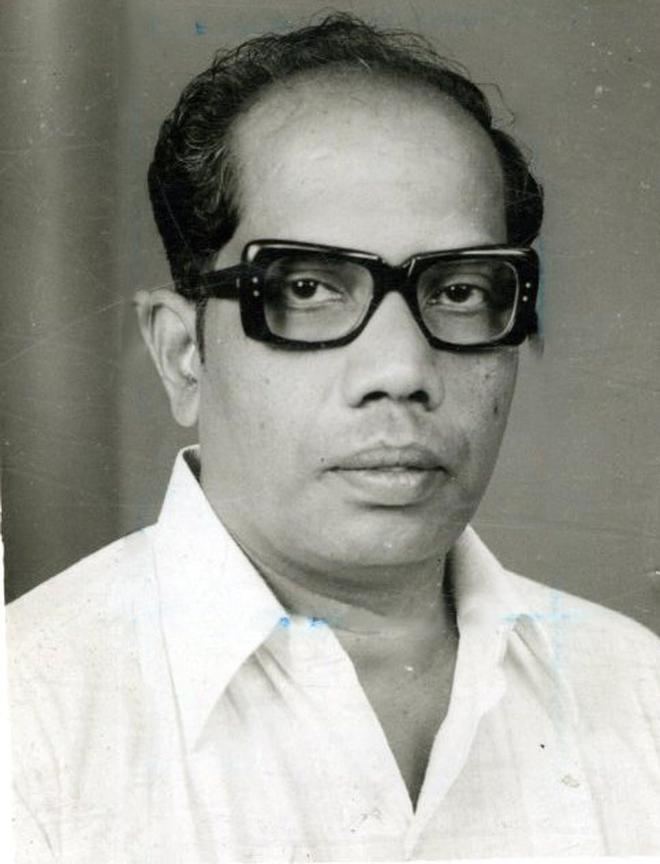
There have been suggestions to Prime Minister Narendra Modi and former Congress president Rahul Gandhi to enter the Lok Sabha through southern States. While Mr. Modi has never contested from any constituency in the south, Mr. Gandhi is a sitting MP from Wayanad in Kerala. Against this backdrop, it would be interesting to see how 45 years ago, former Prime Minister Indira Gandhi desperately sought to go to the Lok Sabha from Thanjavur in Tamil Nadu.
What was more interesting was that not only her name was doing the rounds as the Congress (I) candidate in the run-up to the 1979 Thanjavur by-election there were also hints that DMK chief M. Karunanidhi himself would be the Opposition’s nominee, if she entered the fray. Eventually, neither the former Prime Minister nor Karunanidhi contested in the byelection held in June 1979. The turn of events that characterised the contest then eventually paved the way for the most unexpected happening: the coming-together of the Congress and the DMK a few months later.
Expelled from Lok Sabha
Indira Gandhi’s keenness on getting back to Parliament became apparent after she was expelled from the Lok Sabha in December 1978 for breach of privilege following her spectacular victory a month earlier in Chikmagalur (called Udupi-Chikmagalur after the 2008 delimitation). It was around the same time that AIADMK MP from Thanjavur S.D. Somasundaram had resigned following his induction into the Cabinet, headed by M.G. Ramachandran, as the Revenue Minister in May 1978.
As soon as the Election Commission decided to hold the by-election to Thanjavur, along with Nagapattinam (a constituency reserved for the Scheduled Castes), in June 1979, there was talk that the former Prime Minister would contest this time from Thanjavur. R.V. Swaminathan, the then chief of the State unit of the Congress (I), as the party was known at that time, made a strong case for her candidature at the working committee meeting held on May 17. Despite holding two sessions, the committee did not decide on fielding her, though the AIADMK, a few days earlier, had announced that it would have an alliance with the Congress.
In the meantime, Karunanidhi told reporters in Chennai that his colleagues, as also leaders of various parties, had requested him to contest from Thanjavur. He said he was holding consultations with DMK general secretary K. Anbazhagan and other office-bearers on the suggestion. However, Karunanidhi’s autobiography, Nenjukku Needhi (the third volume), did not reveal what he had in his mind. It only referred to an editorial in an English evening daily that had advised Indira Gandhi not to contest in Thanjavur as Karunanidhi himself would enter the fray, given that he hailed from the area and suffered “excesses” during the Emergency. In Nagapattinam, the DMK declared its support for the Communist Party of India (CPI), which had contested in the 1977 Lok Sabha election as part of the AIADMK-Congress alliance.
A meeting with MGR
It was expected that the announcement of Indira Gandhi’s candidature was a matter of formality. Then came the dramatic turn that she had given up the idea of contesting from Thanjavur. A report published by The Hindu on May 21, 1979, giving a gist of what had transpired at the meeting between her and MGR at the residence of senior Congress leader Kamalapati Tripathi in New Delhi, stated that “though the AIADMK would stand by its commitment, her victory could not be guaranteed”.
Infighting in Congress
MGR had referred to the infighting in the State unit of the Congress (I) and despite being assured that Swaminathan and his predecessor G.K. Moopanar had resolved to work unitedly for her, he had stuck to his assessment. However, senior Congress leader C.M. Stephen and Swaminathan felt strongly that there was a “complete change” in the attitude of MGR after his talks with the then Prime Minister, Morarji Desai [on the night of May 19]. Capturing the status of the AIADMK-Congress ties, the report said the relationship between the two had been “embittered”.
Addressing a public meeting at Mannargudi a week later, MGR denied the charge of the Opposition about the change in his attitude. One of the reasons cited by him was that there would be a “law and order problem” if she contested. In support of his stand, he cited the speeches and writings of some political leaders. But his position was dismissed by the former Prime Minister herself in a chat with reporters. “Does he mean to say that there is no law and order problem as between his government and the DMK even otherwise?,” she retorted.
She also alleged that it seemed to her there were “pressures and threats” not only at the political level but also from the government. “This is the way in which democracy seems to be working and functioning,” she said, according to a report published on May 23, 1979.
Finally, the Congress (I) decided to field lesser-known S. Singaravadivelu, who defeated the DMK’s Anbil Dharmalingam comfortably. Three months after the byelection, the DMK and the Congress announced that they had come together to fight in the 1980 Lok Sabha election.
On the Thanjavur byelection episode, R. Kannan, in his book MGR: A Life, observes, “MGR’s efforts to wean her [Indira Gandhi] away from the DMK and woo her would border on the tragicomic, and would not bear fruit till mid-1982.”







